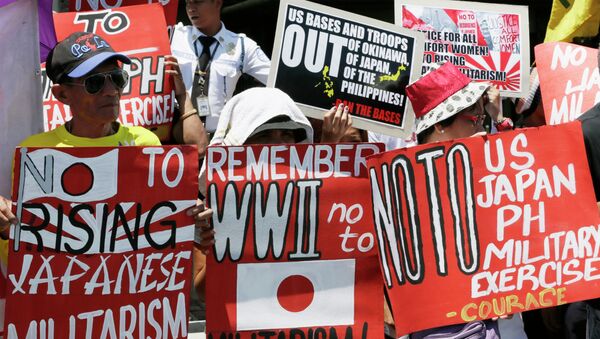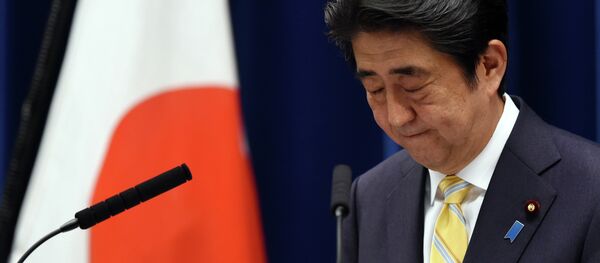Prime Minister Abe came into office in December of 2012 with two major promises: to improve the economy and strengthen Japanese military resolve. In pursuit of the latter, his administration has taken several steps to overturn a voluntary self-defense ban in place since the Japanese defeat in World War II.
As the United States continues to pressure Pacific allies into taking a more active role in patrolling the contested waters of the South China Sea, Japan has taken the bait. Tokyo has participated in a number of provocative military exercises in the region. The Japanese parliament is also currently considering legislation which would allow the country’s defense forces to aid allies facing a military threat.
Many interpreted this bill as being aimed at Beijing, which was quick to criticize the provocative legislation.
"We have noticed the report. If it is true, we believe Japan should issue an explanation and clarification," Chinese Foreign Ministry spokeswoman Hua Chunying said Monday, according to China Daily.
But Abe’s administration isn’t just being criticized abroad. A recent poll of Japanese voters conducted by TV Tokyo shows that the prime minister’s aggressive positions have caused his ratings to plummet to an all-time low.
According to the survey, 40% of voters now oppose Abe’s cabinet, the highest since the prime minister took office. Abe’s support has also fallen by three points, with only 47% of voters expressing a favorable view of the administration.
When asked specifically about the proposed military legislation, the numbers look even worse. 56% of those polled said they opposed the bill which would send Japanese soldiers to fight overseas, reversing the country’s longstanding pacifist policies.
Military aggression may not be the only thing that has soured public opinion. Many voters were also concerned by a recent proposal from members of Abe’s Liberal Democratic Party, which sought to punish national media outlets who spoke negatively of the administration.
"The most effective way to punish the mass media is to make them lose advertising revenue and to do so, the government should apply pressure on Keidanren [Japan’s main business body]," one politician was reported to have said during a government meeting last week, according to the Financial Times.
"Freedom of expression is the root of democracy so it’s unacceptable for the LDP not to show our clear support for it," Prime Minister Abe said once the story became public, but the damage may have already been done.
Regardless of public opinion, Abe’s LDP party as a sizeable majority in parliament, and could push the self-defense legislation through without much pushback from rival parties.




